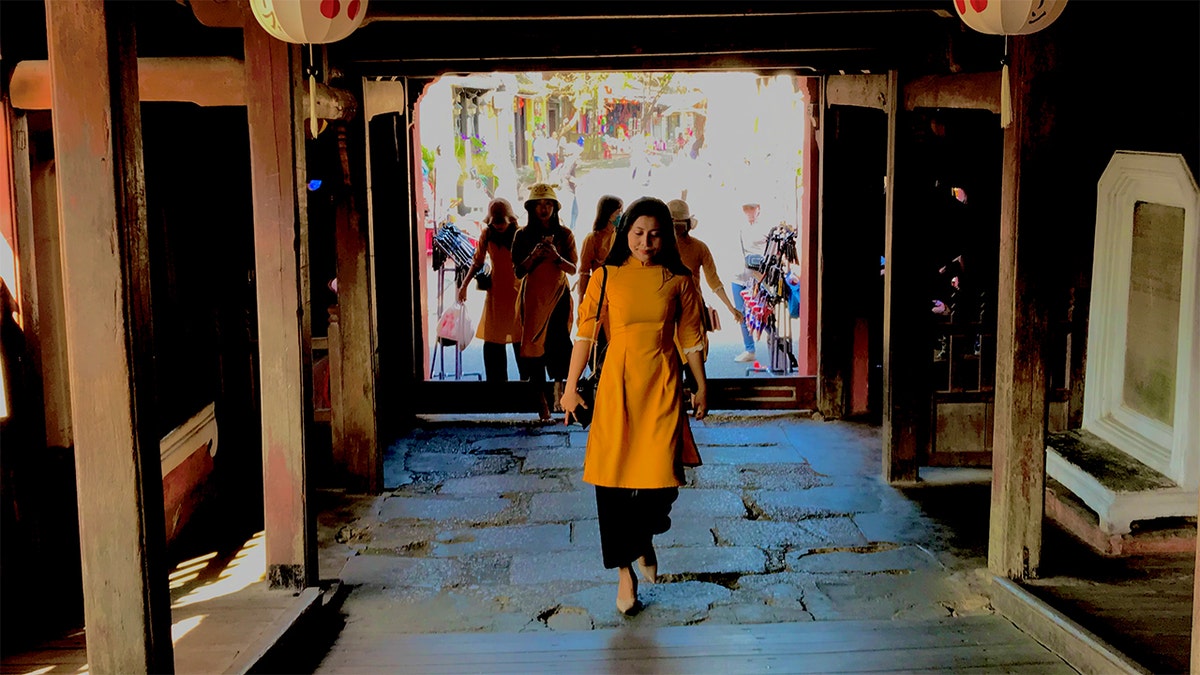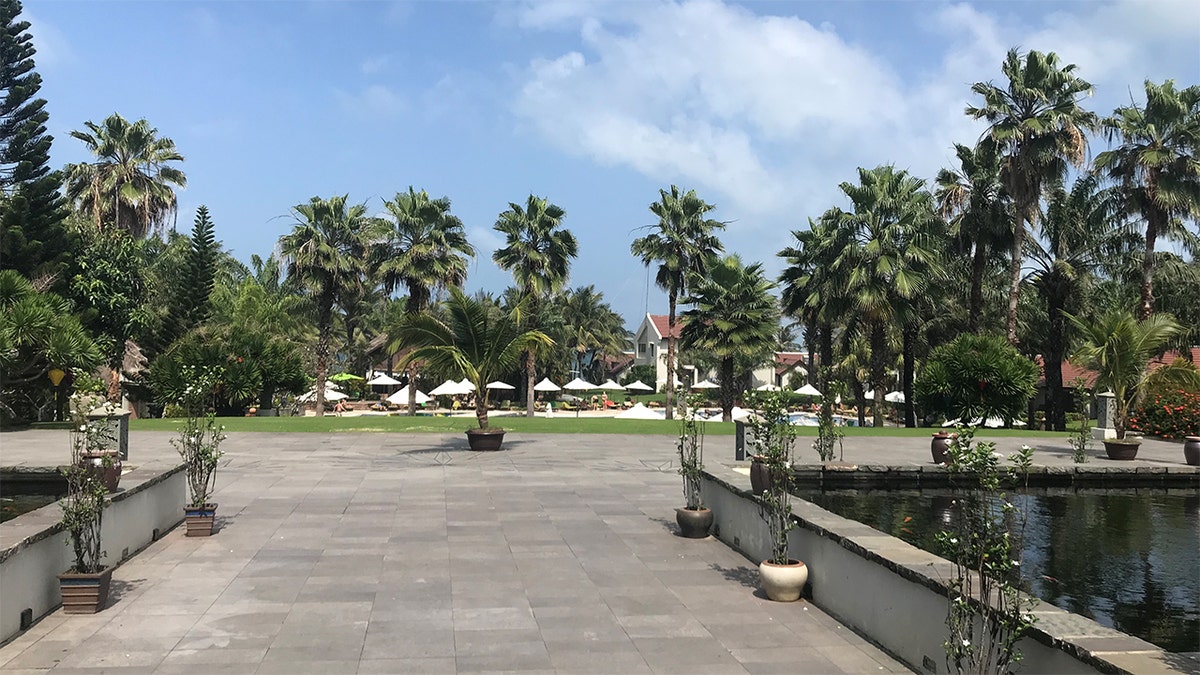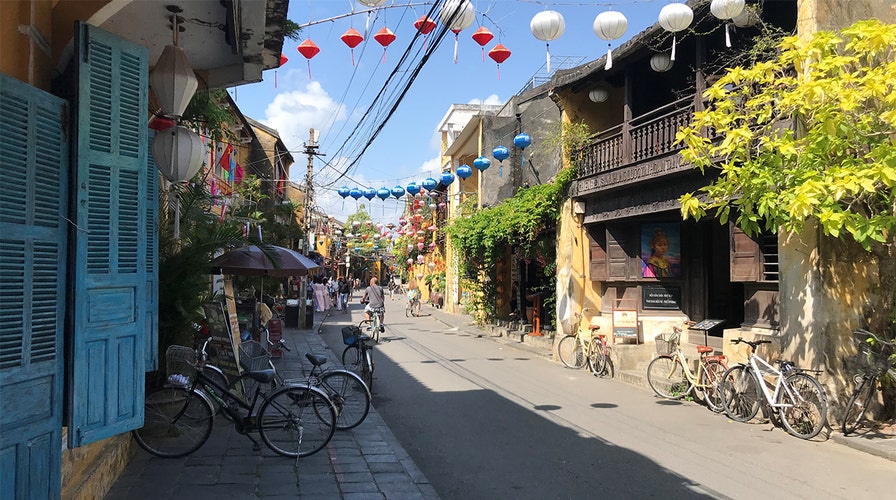Coronavirus fits criteria for 'Disease X,' WHO expert says
According to one World Health Organization (WHO) expert, the coronavirus outbreak fits the criteria for 'Disease X,' a placeholder on a list of diseases that have the potential to reach international epidemic levels.
HOI AN, Vietnam -- Flying in Southeast Asia has become somewhat of a frightening experience. The sound of someone coughing or sneezing on a plane causes wide-eyed reactions from mask-wearing passengers. (Meanwhile, the idea of people wearing medical masks in public used to elicit giggles in some parts of the globe. Now, most of us understand their concerns in a post-COVID-19 world.)

The crowds at a popular tourist spot in Hoi An have thinned amid decreased tourism to the region. (Andrew Fone)
Since the outbreak of the novel coronavirus, masks like those are ubiquitous in airports, worn by just about everyone. Hand sanitizer is everywhere. At airport counters and in hotel lobbies, it’s a good idea to take a squirt and vigorously clean your hands.
CORONAVIRUS FITS CRITERIA FOR 'DISEASE X,' WHO EXPERT CLAIMS
Vietnam has so far been spared the brunt of coronavirus cases. As of Feb. 26, the government reported only 16 people had contracted the disease in a country with a population of 95 million. Schools and universities are closed until next month (and have been since the Lunar New Year), and in towns and villages, kids are enjoying an extended vacation. The same is true of some of their parents, as many factories and businesses have also closed or are operating with reduced staffing.

Beyond the fears of a widespread coronavirus outbreak, it’s the economic impact that’s worrying people here. Vietnam partially closed its border with China weeks ago, according to the Straits Times, protecting itself from people potentially exposed to the virus — but this has also minimized trade to its largest export market. Farmers have piles of watermelons and vegetables, and no place to sell them.
CLICK HERE TO SIGN UP FOR OUR LIFESTYLE NEWSLETTER
In the former imperial city of Hue, multiple restaurants have signs banning Chinese customers from entering. Some hotel bookings are down as much as 80 percent.
![A sign outside a restaurant in Hue tells Chinese customers that they will not be served "untill [sic] the corona disease is over."](https://a57.foxnews.com/static.foxnews.com/foxnews.com/content/uploads/2020/02/1200/675/VietnamCoronaAndrewFone1.jpg?ve=1&tl=1)
A sign outside a restaurant in Hue tells Chinese customers that they will not be served "untill [sic] the corona disease is over." (Andrew Fone)
FOLLOW US ON FACEBOOK FOR MORE TRAVEL NEWS
Just down the coast in Hoi An, a city famous for its beautiful beaches, new resorts stand empty. When checking into a hotel, someone takes your temperature with a digital thermometer, and employees are required to wear masks.

Some resorts in Vietnam, like this one in Hoi An, report significat drops in bookings since the outbreak. (Andrew Fone)
There are handfuls of Europeans who have decided to travel here, but once they leave their hotels, they too are wearing face masks. In the old town along the lantern-lit river, the bustling crowds are gone.
Not far away from Hoi An, in a smaller village, a young woman from Hanoi said she feared things would not improve in the near future. She opened her restaurant last March and said business this time of year is usually very good. Now she stares at empty tables.

A young girl in Hoi An sells lanterns on what was once a bustling lantern-lit riverwalk. (Andrew Fone)
CLICK HERE FOR FOX NEWS' COMPLETE CORONAVIRUS COVERAGE
On this trip, I traveled with a self-confessed germaphobe. No sooner had we boarded the plane than the Clorox wipes came out, and a good scrubbing of the seat began. But when we left the U.S., the virus was mostly contained to China, with a few cases here and there. Now, it has spread globally, and with the CDC issuing Level 3 alert for South Korea (avoid all nonessential travel), transiting through the airport seems a bad idea.
The constant washing of hands and avoidance of crowded places was easy — but the biggest challenge might be getting home.









































